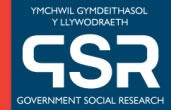Business attitudes on the changes to workplace recycling (summary)
This research surveyed small and medium enterprise (SME) business establishments located in Wales in October 2023. Business establishments were identified through ownership of a business telephone line. The aim of the survey was to better understand businesses perceptions and attitudes to the changes to workplace recycling legislation.
This file may not be fully accessible.
In this page
Introduction
The Welsh Government’s Resource Efficiency and Circular Economy department, commissioned Beaufort Research, to conduct a survey of the Welsh businesses to better understand the perceptions and attitudes regarding the forthcoming legislative changes to workplace recycling.
The changes are not only focused on improving the quality and quantity of recycling but are vital to delivering Wales’s commitments to reach zero waste and reduce our carbon emissions by 2050. The Regulations implement several actions which are included in the Welsh Government’s Circular Economy Strategy for Wales, Beyond Recycling.
In addition to this business survey, two separate surveys have been undertaken on public attitudes and perceptions to the legislative changes on Workplaces. These were conducted in February-March 2023[footnote 1] and November 2023.
Methodology
The survey was conducted on the Beaufort Wales Business Omnibus survey, which interviews a quota sample of 500 decision makers in SME businesses across Wales each wave and reflects the population of SME businesses in Wales in terms of key demographic characteristics. A different set of businesses are interviewed each wave although samples are matched in terms of key business characteristics.
Interlocking quotas were set on business activity and size within region based on data supplied by the business data and marketing solutions provider, Market Location. Business activity was split into the following groups using UK Standard Industrial Classification (2007):
- Wholesale and Retail
- Hotels, Restaurants, and other services
- Agriculture, Fishing, Mining and Utilities
- Manufacturing
- Construction, Transport/communications
- Finance, Real estate/business activities
Size relates to the number of employees and was split into the following categories: 1; 2 to 9; 10 to 250 employees.
A sample of businesses were randomly selected by Market Location and businesses within each activity group and region were randomly contacted and interviewed until the quota targets where met.
Eligible respondents were defined as the manager, proprietor, owner, managing director or other senior manager present at the time of interview.
Draft questions for the survey were supplied by Welsh Government. These were finalised following discussions with Beaufort.
Open and closed questions were asked. Participants were given response options to choose from if asked a closed question. At analysis, responses to open-ended questions were manually categorised and assigned specific codes to allow for a quantitative measure of responses to be made. An inductive approach to generating codes was carried out whereby open-ended answers were reviewed and ‘codeframes’ were produced based on the content of responses. As a response from a single respondent could be given multiple codes, the percentage of responses against all codes will add up to greater than 100%.
The survey was available in English and Welsh and could be taken in the participants’ preferred language.
Fieldwork took place between 2 and 22 October 2023. A total of 502 telephone interviews were completed and analysed.
Full data tabulations from the survey have been provided to the Welsh Government in a separate technical report.
The Wales Omnibus Survey uses proportional Market Location quota sampling (not random sampling) to reflect SME business population in Wales. Therefore, any findings in this survey reflect the view of the sample and care should be taken in translating any findings to the wider SME business population in Wales.
Main findings
- 65% of SMEs surveyed reported that they already recycle everything they can.
- Spontaneous awareness of any forthcoming changes to the law was reported by 42% of SMEs surveyed.
- Similarly, when prompted with an explanation of the law change, 47% of the SMEs surveyed reported having heard about the new workplace recycling law, but only 16% of respondents respectively said they ‘knew quite a bit about it’.
- 79% of SMEs surveyed supported the law change. 11% of respondents surveyed were against the law change.
- 49% of SMEs surveyed reported not feeling informed about the actions they need to take to prepare for the law change. Despite this, 66% of SMEs surveyed felt either ‘very’ or ‘fairly’ well prepared.
- 22% of SMEs surveyed noted that they had researched how they might be affected by the new regulations.
- 28% of SMEs surveyed reported that they had seen or heard communications about the new law change.
- When asked about the main message of any communications they had seen, the most common themes identified related to the need for businesses to recycle (32% of SMEs surveyed), or that there was a going to be a new legal requirement (25% of SMEs surveyed).
- When prompted with a clip of the radio advert, 16% of SMEs surveyed (160) could recall hearing this on the radio.
- Those who had recalled hearing the advert where then given a list of actions and asked whether they had undertaken any of these after hearing the advert. Of the 160 SMEs surveyed who recalled hearing the radio advert:
- 83% reported doing none of the actions listed
- 17% reported they had acted because of hearing the campaign advert
- 7% accessed the WG website
- 6% contacted their local authority
- 4% contacted their private waste carrier
Footnotes
Contact details
Report authors: Rhian Power and Hannah Davies
Views expressed in this report are those of the researchers and not necessarily those of the Welsh Government.
For further information please contact:
Rhian Power and Hannah Davies
Email: resourceefficiencyandcirculareconomy@gov.wales
Social research number: 24/2024
Digital ISBN 978-1-83577-821-0

